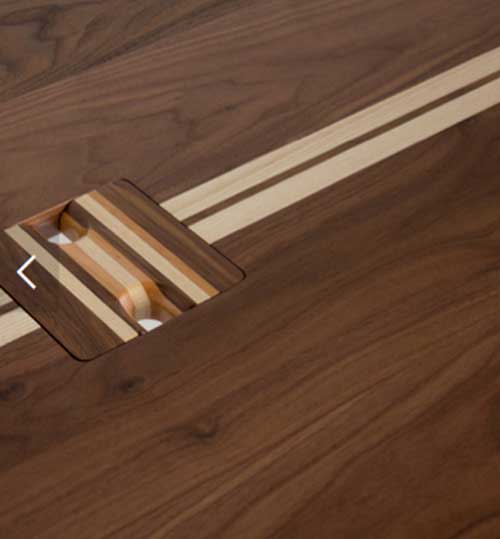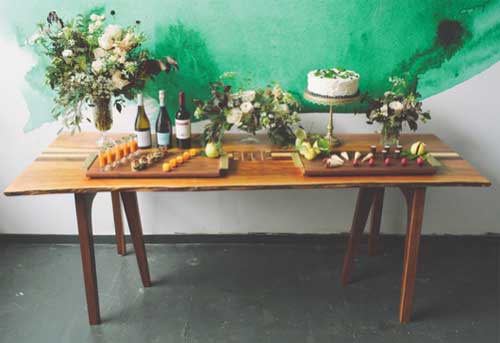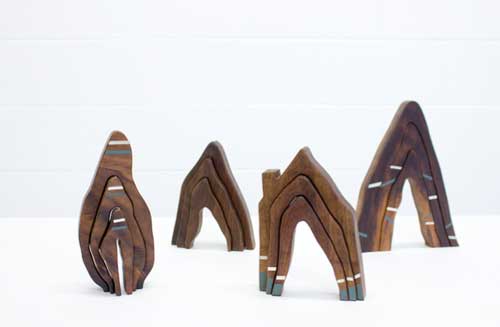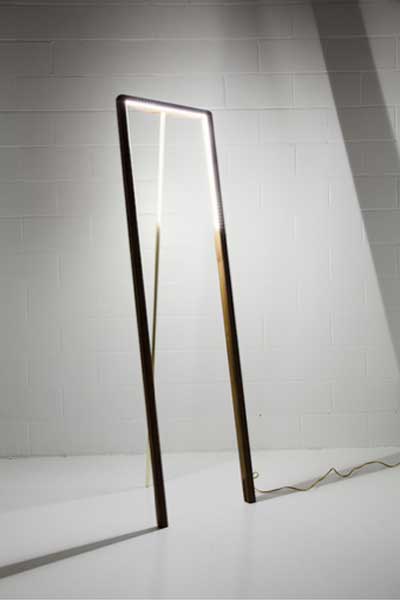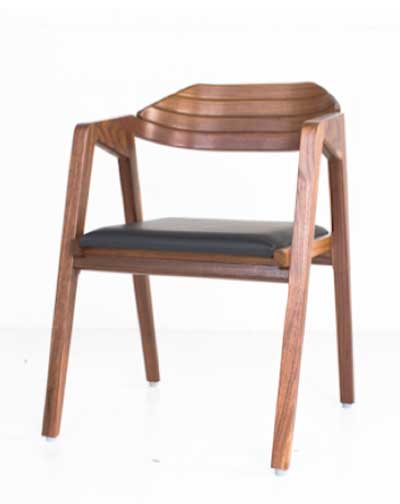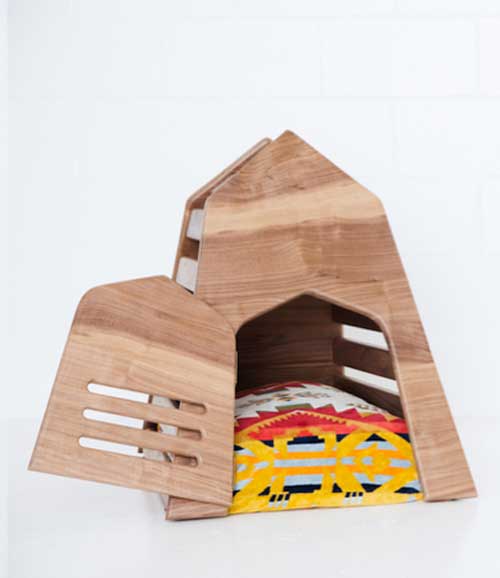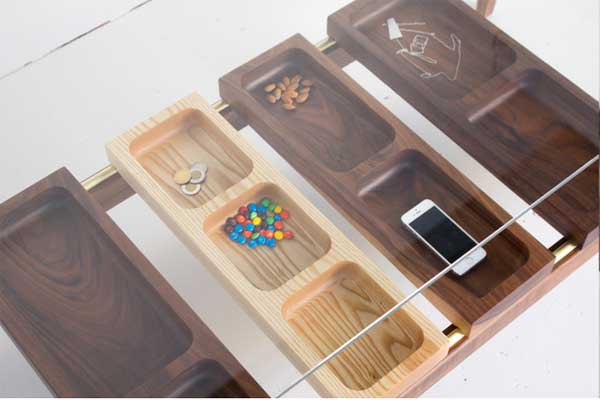
Brent Freedman, who grew up with a mother who was a clothing designer, traces his first knowledge of taking something from a design to an object to what he learned from observing her.
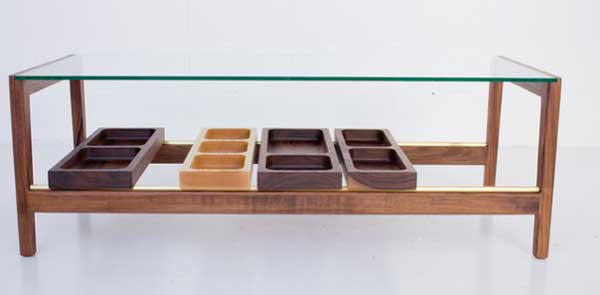
Brent himself “always tinkered with things,” and now considers himself a designer and an artist, who was introduced to wood as a medium in art school. At that time, he said, he was building a lot of miniature models out of wood, doing a lot of fine woodworking and detail work.
As the size of his studio space has grown, however, so has the size of his work. “I thought I was really interested in models, but I look back and realize I just had a tiny studio, and that’s the scale I could do,” he said.
He first had a larger studio when, after art school in Montreal, he and his life and business partner Robin McMillan moved to Vancouver and lived in an arts building with a woodshop downstairs, with “every tool imaginable,” Brent said. “It was a great place to expand on the design process.”
Recently, they’ve moved again, to Bowen Island, British Columbia. In the shop there, Brent said he uses a lot of standard tools, such as a cabinet saw, band saw, planer and jointer, Festool Domino, Rotex sander, and track saw – as well as a small CNC. “I’m interested in traditional woodworking, but also in the future of woodworking,” Brent said.
He also cites the benefits of a “really good scroll saw.” “You can really play around with ideas really quickly. There’s no pressure to get it right. You play with offcuts, and get ideas.”
Part of the incentive for the move was that Brent and Robin’s company, Gamla, described as an object and idea design studio, was “getting more and more orders. We decided that instead of becoming more of a manufacturing facility, we’d be true to what we wanted in the first place” by moving to the island location and creating what they call a “destination studio” – which is still being defined. At the moment, Brent said, they work with a lot of interior designers, and the studio provides a place for the designers to come, spend a day, and talk about ideas. “We wanted to keep Gamla honest.”
“Keep it honest” is also what Brent cites as his biggest design philosophy. When he’s creating a piece, “I don’t want a thing that is just in vogue right now,” he said. “I want something of the present, but true to what I’m trying to say at the same time.”
For instance, “Sustainability, for me, the biggest thing is creating objects that will last a lifetime. If we make objects, do we make something that we treasure and value and can pass down to the next generation?”
Gamla’s focus on sustainability also shows up in other areas, like wood choices – Brent prefers sustainably sourced North American hardwoods, like walnut, white oak, maple and sometimes ash – natural finishes, LED lighting in the shop, and using the sawdust for garden compost. When offcuts pile up in the shop, Brent turns them into a limited edition line of toys, the Odblocks.
The LED lights, however, offer other benefits beyond sustainability. By using LEDs in his line of lighting projects, Brent said, “The light fixture becomes less about the lightbulb and trying to cover it up. You can think of a form, and the LED conforms. It’s more about the object.”
For instance, one of his projects is a Floor Light, in which, “ A simple archway rests on a brass rod and the light illuminates the brass rod. A simple object gives a complex effect,” Brent said.
On the other hand, when Gamla designed Dining Chairs for the Canadian consulate in England, the project saw more complexity. “A chair is a sculptural object, but you have to get the ergonomics right” – which meant it went through several rounds of testing, Brent said.
The most successful Gamla product line, however, is one created out of necessity: the Gimli Dog Line. A few years ago, Brent and Robin got a Welsh terrier, Gimli. As a furniture designer, Brent had created furniture for their home, and noted that they are very particular about their space. “I care what the kennel in the corner of the room looks like,” he said. “I didn’t want one of those ugly dog kennels.”
He created the Gimli Den, a triangular dog kennel and, after the couple showed it to several friends whose reaction was “wow,” it became a product. The followup Traveller Den was born out of the couple’s taste for travel, and the unpleasantness when, on a visit to Portland, “we had to carry an ugly kennel through the hotel lobby.”
Brent is also at work designing a new line of furnishings, which will include lighting, a chair, and a couple of other things. True to his philosophy, it’s an “honest, simple design, but I’m trying to add expressive elements.”
